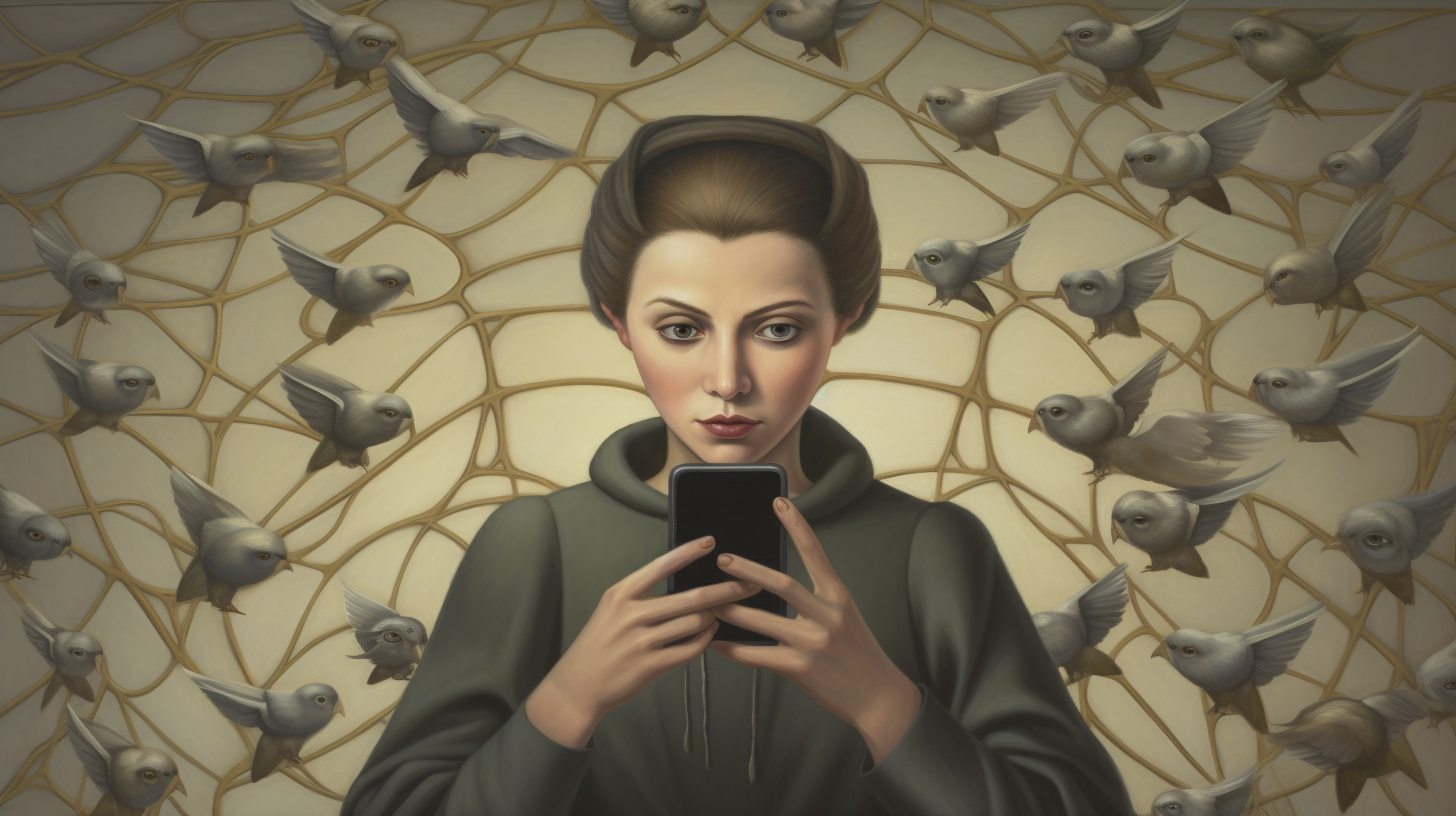The Philosophy of Identity: Exploring Selfhood in the Age of Social Media
In an era dominated by the constant din of social media, identity has been irrevocably transformed. We are trapped in a digital landscape where selfhood is meticulously curated, commodified, and exhibited for all to see. But do we truly know ourselves amidst the shimmering veneer of perfectly filtered selfies and meticulously crafted personal brands? Are we not, in fact, unwittingly surrendering our individuality at the altar of the online spectacle? In this exploration of the philosophy of identity, we shall dare to expose the illusory nature of selfhood in the age of social media, dissecting the superficiality that pervades our digital existence.

I. The Fallacy of Self-Presentation:
In social media, we have become adept performers on a grand stage, entranced by the applause of virtual likes and follows. But this self-presentation, often misconstrued as an expression of our authentic selves, is a mirage constructed to fulfill societal expectations and garner fleeting validation. We have willingly become the authors of our fictional narratives, carefully selecting moments, emotions, and experiences to construct an idealized version of our lives. In this precarious dance of self-presentation, authenticity becomes a casualty.
Historically, philosophers from Søren Kierkegaard to Friedrich Nietzsche have emphasized the importance of self-reflection and introspection in forming an identity. Yet, the constant demands of the digital realm hinder such profound contemplation. The temporary nature of social media compels us to present a fragmented self, a mere projection of our multifaceted existence. The curated self becomes a fragmented mosaic of likes, retweets, and comments, masking the richness and complexity of our true selves.
II. The Echo Chamber of Confirmation Bias:
Social media platforms have spawned echo chambers, where individuals are trapped within ideologically homogeneous groups, reinforcing their biases and shielding themselves from dissenting opinions. This insular environment leads to a dangerous erosion of critical thinking as individuals become wrapped in their echo chambers, impervious to intellectual challenges and alternative perspectives.

Plato's allegory of the cave is a poignant reminder of the dangers of intellectual complacency. Just as the prisoners in the cave were content with the flickering shadows on the wall, we are also satisfied with the simple truths and echo-chamber narratives presented on social media. We must break free from these self-imposed chains, seeking genuine intellectual engagement and welcoming the discomfort of dissenting ideas.
III. The Spectacle and the Self:
The modern phenomenon of the spectacle, theorized by Guy Debord, has found its apotheosis in the realm of social media. As a result, our lives have become incessant spectacles, where carefully constructed performances for mass consumption replace moments of vulnerability and genuine connection. As a result, we have willingly embraced a culture of exhibitionism, reducing ourselves to mere commodities in the marketplace of attention.
The philosopher Jean Baudrillard warned us of the dangers of simulation and hyperreality, where the boundaries between reality and its representation become blurred. Social media serves as the ultimate simulacrum, distorting our perceptions of selfhood by presenting a hyperreal version of who we wish to be. In this constant pursuit of validation, the authenticity of our true selves becomes a casualty.

Conclusion:
In the age of social media, the pursuit of selfhood has been hijacked by a culture of self-presentation, confirmation bias, and spectacle. Our carefully constructed and polished digital personas veil the complexity and authenticity of our true selves. To reclaim our individuality, we must embrace self-reflection, challenge the echo chambers of our online existence, and resist the seductive allure of the spectacle.
Let us not be prisoners in the cave, content with the flickering shadows of validation and conformity. Instead, let us embark upon a journey of introspection, unafraid to question the narratives surrounding us. Only then can we transcend the illusory nature of selfhood in the age of social media and rediscover the profound depths of our humanity.
In the words of Friedrich Nietzsche, "Become who you are." And perhaps, in this digital realm, we may yet find the courage to reclaim our true selves from the clutches of the virtual spectacle.

Plato Re-Imagined
This course offers 32 comprehensive lectures exploring most of Plato's dialogues. These lectures guide students toward a consilient understanding of the divine—a concept that harmonizes knowledge across disciplines and resonates with secular and religious leaders. As a bonus, Lecture #33 focuses on consilience, demonstrating how different fields of knowledge can converge to form a unified understanding.






